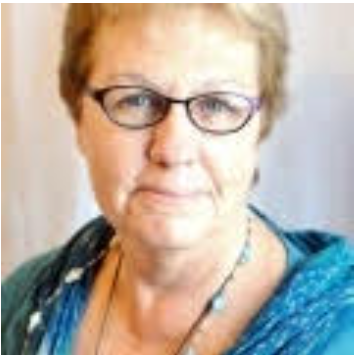Huairou Commission Governance Transition: Demonstrating an Organizational Model of Grassroots Decision-Making at the Global Scale
Governing Council
Governing Council
Huairou Commission – as a coalition of grassroots women’s groups and allied advocates, academics, and professionals – was born of a collective effort to secure public recognition for the leadership of organized groups of grassroots women in the context of poverty eradication and sustainable development and to position local women-led organizations as driving forces in public agenda-setting and political accountability.
Putting this vision to practice, Huairou Commission resolved to advance our social movement building approach by establishing structures and processes wherein grassroots women leaders and groups were empowered to globally govern the organization. In February 2018, the first Global Grassroots Women’s Congress (GGWC) produced a milestone by transferring decision-making power from NGO allies and professional staff to the representative leaders of grassroots women’s organizations.
The GGWC was convened in Kuala Lumpur, Malaysia prior to the 9th UN Habitat World Urban Forum. Mature member organizations from 28 countries met for two days of shared learning, debate, planning and decision-making. Delegates of 56 member organizations voted on leadership, new rules of organizational governance (by-laws), strategic directions and a social compact affirming shared commitments to cooperation and collective action.
A Governing Council, comprised of 15 members (10 leaders of grassroots women’s organizations, 4 NGO representatives and 1 founding network representative) was elected with Violet Shivutse elected as its Chair. Its first order of business was to elect an Executive Committee to serve as caretakers between the Annual Meetings of Members (GGWC) and to appoint Sandra Schilen as the Executive Director.
The new operating structure is intended to foster bottom up decision-making processes that ensure that Huairou Commission is accountable to and governed by its members (per the following diagram).

Huairou Commission’s Governing Council
Violet Shivutse
Chair & Africa Regional Representative
Violet Shivutse is a grassroots woman leader and farmer from Kakamega, Kenya. She is the Founder-Director of women-led community-based organisation, Shibuye Community Health Workers (Shibuye), which has a membership of 2000+ women across three Counties in Kenya. Violet has been the Chairperson of Huairou’s Governing Council since she was elected to the position in 2018, guiding decision-making processes at the organisational level.
Violet has over two decades of experience in negotiating with diverse stakeholders, and mobilising and empowering grassroots women to address issues of climate resilience and justice, HIV/AIDS, women’s land rights, and the care economy. Violet has a strong capacity to influence and bring transformative changes by engaging with the local government in policy dialogues, as well as national and international development banks, climate finance institutions and other global actors.
Violet has represented the global network in policy fora all over the world, continuously pushing for rural and grassroots women’s inclusion at higher levels of dialogue. Violet has been a two-term grassroots representative on the UN Women’s Global Civil Society Advisory Board and co-chair of the Farmer’s Constituency Group of the UN Women’s Gender Action Plan. She currently sits on the Management Committee of the Global Alliance for Care, and routinely represents the grassroots women’s constituency in UN-Habitat’s Executive Board Meetings.
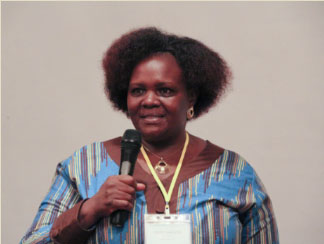
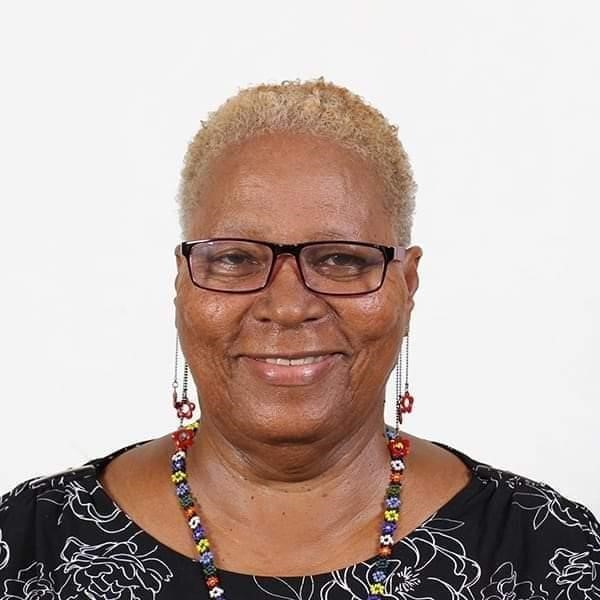
Lana Finikin
Vice Chair & Caribbean Regional Representative
Lana Louise Finikin has 45 years of experience with the Sistren Theatre Collective as a founding member and Executive Director since 2004, leading programming on gender-based violence and crime prevention. Using the creative arts as a tool for analysis and action at the national, regional, and international level, Sistren Theatre Collective implements workshops, the performing and visual arts, and psychosocial rehabilitation in inner city communities across Jamaica. Themes vary from teenage parenthood, health & HIV/AIDS, sexual violence, and crime to issues such as housing, migration, justice, and economic policy. Lana has traveled extensively with the Collective on tours as a performer, tour manager, and training mediator. Lana views the performing arts as a means of inciting social change, providing services through community mobilizing and organizing around community development. She puts an emphasis on collective analysis of issues and discussion of possible solutions through networking with organizations at all levels. Lana is responsible for building a local chapter of GROOTS International in Jamaica, and she also serves as President of the West Cumberland Community Development Council (CDC) and sits on the United Nations Commission on the Status of Women Committee for Latin America and the Caribbean and the Advocacy & Research Group.
Haydee Rodriguez
Latin American Regional Representative
Working as a farmer since childhood, Haydee Rodriguez grew up with the knowledge that women’s roles are undervalued and disadvantaged, and experienced firsthand the devastating effects of natural disasters on the livelihoods of local communities. Haydee has dedicated her life to empowering women through raising awareness of women’s rights and bringing gender issues to the attention of authorities, with the goal of advancing rights of women. She is part of the Board of Directors for the Cooperatives of Women Producers “Las Brumas” in Jinotega-Nicaragua. In recent years, her work has focused on disaster risk reduction, making land and housing accessible for women, strengthening women’s leadership, sustainable and smart agriculture, environmental protection through Community Resilience Fund, and the implementation of strategic alliances with local governments through the Community Practitioners Platform for Resilience. Haydee has been a strong leader in the sustainable agriculture movement, particularly in soil conservation work. Her vast experience in leading Last Brumas has resulted in it being the only female-led cooperative to be invited to the National Agricultural Forum hosted by the Honduran government to share sustainable agricultural practices.
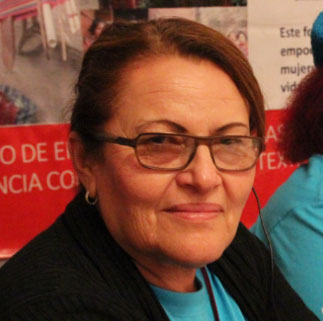
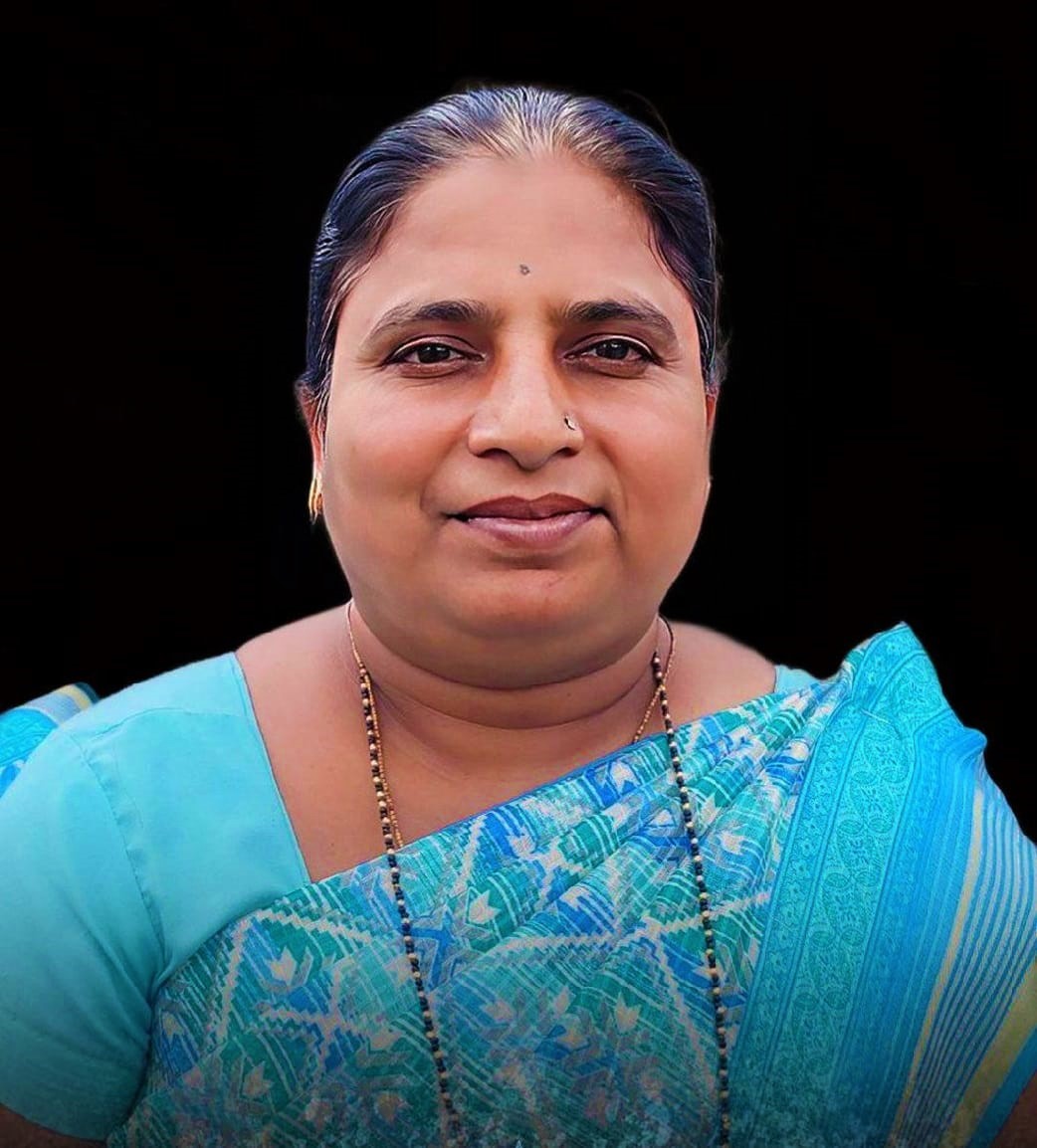
Godavari Dange
Asia Regional Representative
Godavari Dange is a seasoned grassroots leader from the Marathwada region of Maharashtra, India and is associated with Swayam Shikshan Prayog (SSP) that empowers grassroots women to bring them from the margin to the mainstream. She is the Secretary of Sakhi (Grassroots Women) Federation in Maharashtra and a member of the Huairou Commision. Godavari is the Director of Vijaya Sakhi Women-led Farmer Producer Company Osmanabad, Maharashtra and she is also the grassroots member in SSP’s Governance Committee. Godavari has spent decades organizing women smallholder farmers and promoting sustainable farming methods in the drought-prone villages in Maharashtra, India. She is a visionary on bottom up women-led models for sustainable development. She started her journey in the year 2000 by participating in women’s self- help groups (SHGs) and mobilizing other women into SHGs. Within one year, Godavari founded the first women’s federation to work on women’s economic and leadership development which presently has more than 5000 members and is part of the larger network of 2,00,000 women empowered by SSP.
Against the backdrop of recurring droughts and male farmers’ preference to grow water-intensive cash crops leading to food and income insecurity in the Marathwada region, Godavari brought together a group of women farmers who grew nutritious food crops such as millets and pulses on a small, negotiable portion of family land – often as little as half an acre. She leads the community resilience fund that seeds innovations and currently supports 75,000 women to lead efforts in food security, sustainable agriculture, water conservation, environmental innovations and women led enterprise towards building greater leadership of grassroots women in DRR and climate resilience. She has traveled to 16 countries for various global conferences and received numerous awards including the UNDP Equator Prize in 2017, Rama Govinda National Award in 2018, the Osmanabad Stree Shakti Award from Osmanabad 2020, and Hirkani Award from Narendra Acharya Trust Women Leadership 2020.
Marnie Tamaki
North America and Europe Regional Representative
Marnie Tamaki has been a practicing architect in British Columbia, Canada for several years with experience in developing low-income housing, women’s centres, commercial and institutional buildings. She is currently working as a Sr. Project Manager with a global engineering company. From her early years as a single mother, Marnie understands the importance of housing and community. She has nurtured a lifelong commitment to participatory processes and women’s leadership. Marnie worked in Papua New Guinea, helping to establish GROOTS PNG and in Sri Lanka with GROOTS International on post disaster women’s centres. Her work with GROOTS Canada includes organizing, sponsoring and participating in peer exchanges, grassroots academies and global conferences. As a founding member of GROOTS Canada/GROOTS International, Marnie was part of the inception of the Huairou Commission in 1995. She is dedicated to having grassroots women’s voices heard and to advancing grassroots women’s leadership in community development.
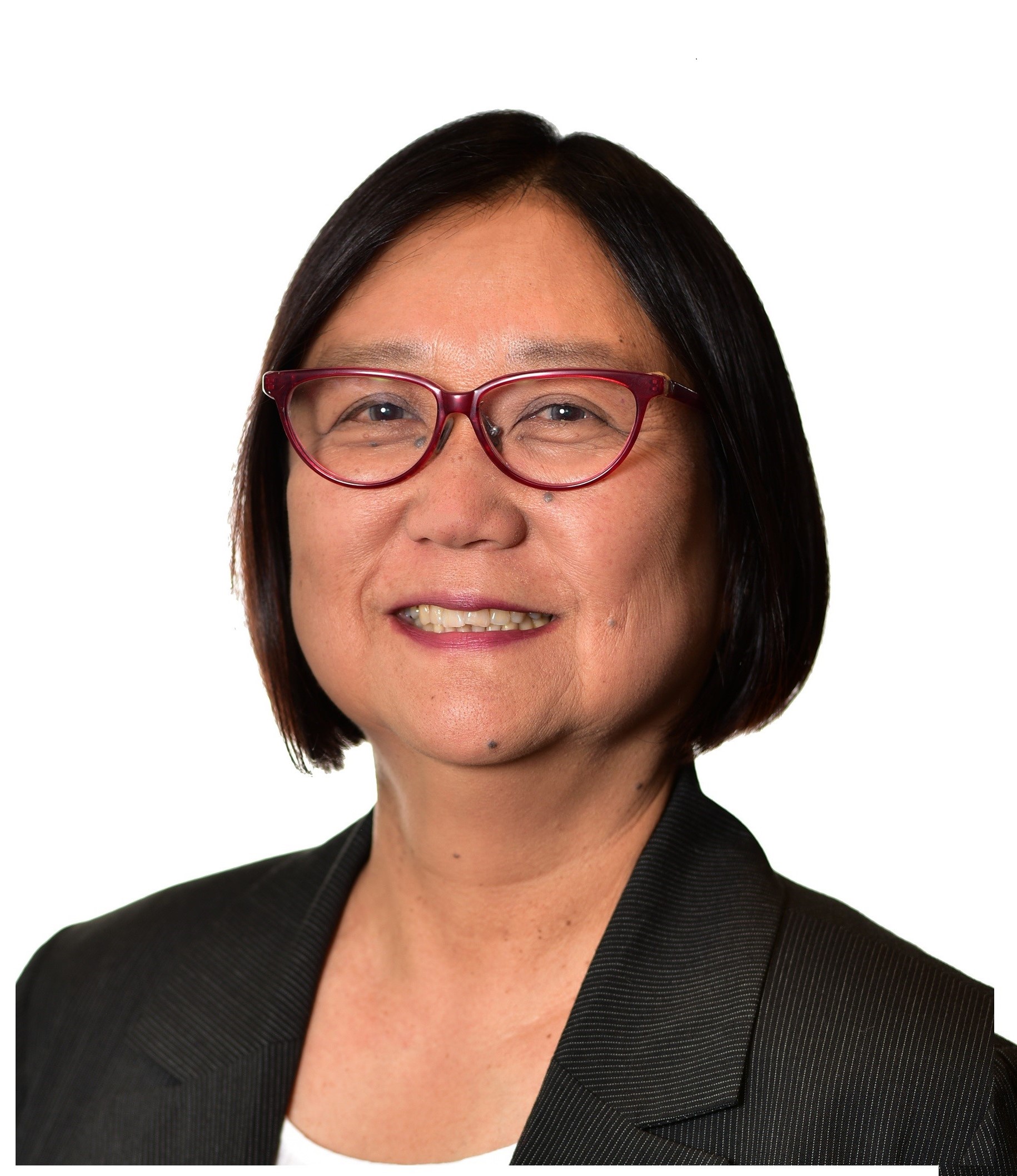
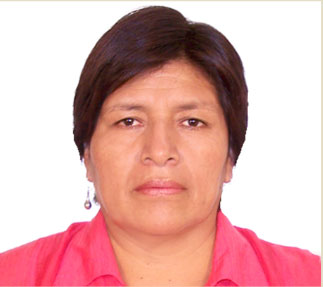
Relinda Sosa Perez
Grassroots At Large Representative
Relinda Sosa Perez is a grassroots leader from Lima, Peru. She began doing social work in the Vaso de Leche committee in 1986, and since 1989 she has worked in organizing soup kitchens like the popular self-managed Virgen de Nazareth in the Augustinian district. After representing the organization of soup kitchens in the district from 1994 to 1997, Relinda presided over the FEMOCCPAALC from 1997 to 2000. During this time, she worked with other leaders to promote the creation of CONAMOVIDI, or Network of Women in Kitchens. The organization moves past a primary focus on food distribution to advancement and strengthening the participation of women in processes of decentralization, particularly at the provincial government level where the budget for soup kitchen programs was transferred. Relinda’s organizational, social, and political work is based in grassroots connections and generating approaches to monitoring and advocacy at the local and national levels. For the last 10 years, Relinda has participated in global spaces facilitated by the Huairou Commission’s global network, taking on the priorities of grassroots women and their communities in the Sendai Framework for Disaster Risk Reduction, the New Urban Agenda, and the Sustainable Development Goals.
Laxmitara Dangol
Grassroots At Large Representative
Laxmitara Dangol, a grassroots leader and member of the Huairou Commission since 2010 is a Board member of the Community Women’s Forum (CWF) and the Chairperson of the Thecho Mahila Jagaran Cooperative, Thecho, Godavari Municipality in Nepal where she works with 35 Cooperatives and 36,000 grassroots women. Laxmitara is a community mobiliser, organizer and trainer in Entrepreneurship Development. As an entrepreneur herself, she has created employment opportunities for other grassroots women in the communities where she works and participated in various regional events linked to enterprise development such as “Start Up” organized by SSP, India in (2015).
Through her community development work she has built strong partnerships with the local government and played an instrumental role in establishing a National Network of eights grassroots savings & credit organizations across Nepal. Laxmitara is a resilience building expert with community risk mapping and DRR preparedness skills. In her public role, as the elected member of the Municipality Committee of Women Entrepreneurs she is leading and mentoring more than 72 women leaders from the Cooperatives and actively mobilizing them to lead sector-specific initiatives. Under her leadership, the cooperative’s size increased from 372 women in 2008 to 3000 women in 2022 and mobilized more than 76,000 USD through their cooperatives gaining recognition by the National level Government.
Laxmitara has represented her cooperative and CWF in national, regional and global platforms particularly in WASH (Water Sanitation and Hygiene) and economic empowerment forums; she participated in WUF (World Urban Forum) in 2018 in Kuala Lumpur linking grassroots priorities at local level to global policy issues/discussions.
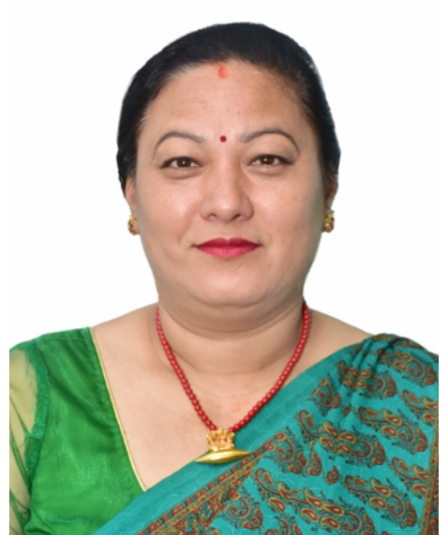
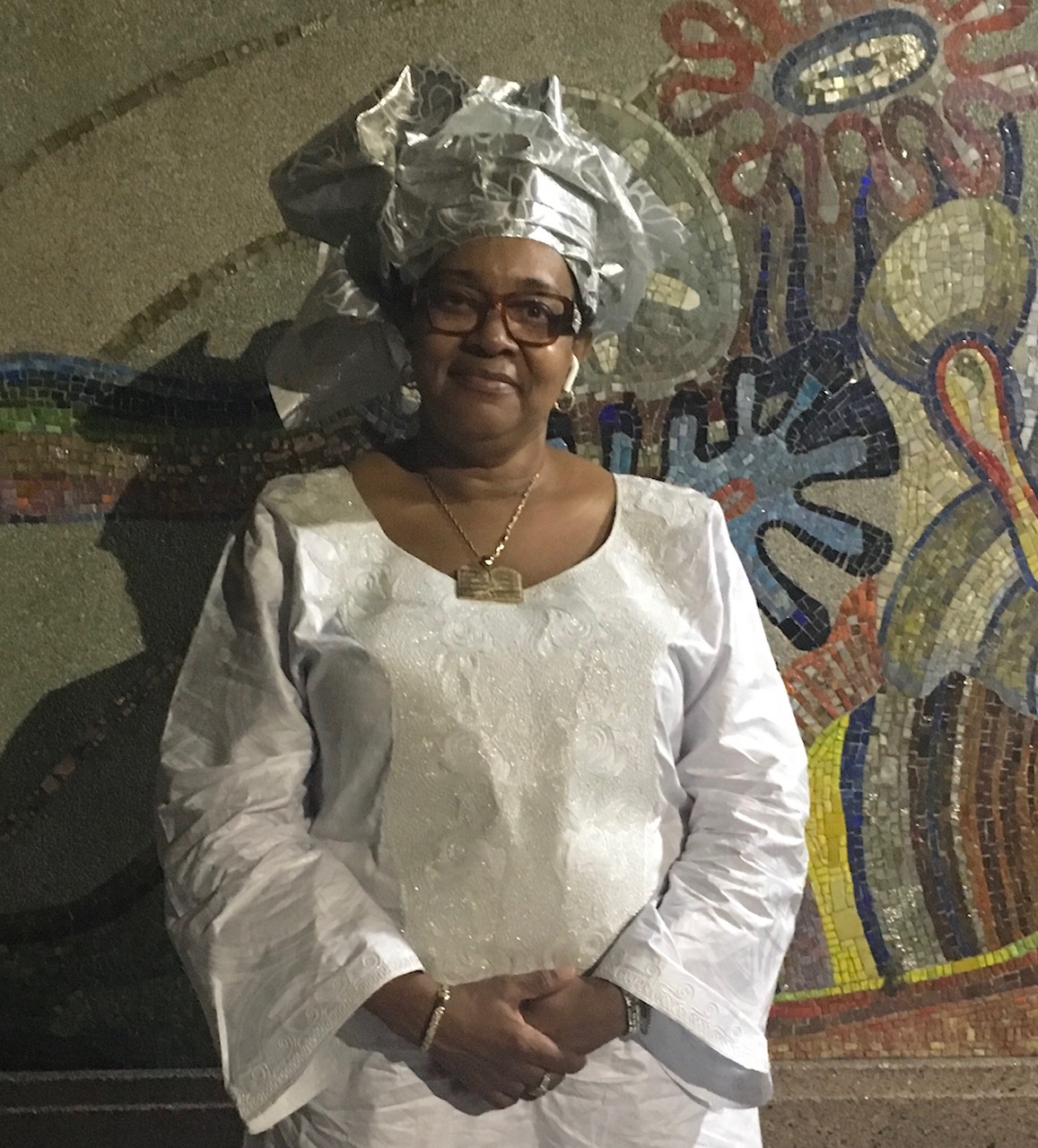
Maria Forbes
Grassroots At Large Representative
Maria Forbes, an HC member since 2016, has been a member of the National Congress of Neighborhood Women (NCNW) since 1995 and now serves on the board. & a member of Huairou Global Commission since 2016.
Maria is a single mother of three and has served as President of the Clay Avenue Tenants Association in Bronx County since 1990. In this role, she has led Clay Avenue residents to advocate for increased tenant services and community programs, continuing to work closely with elected officials to make sure the most vulnerable community members are not left behind are an integral part of planning processes. Maria has experience in bringing public housing issues to the forefront of policy debate, teaching emergency disaster awareness, and raising the capacity of NY citizens to navigate the complex system of city, state & federal levels to facilitate and expedite services.
Maria has consistently given her time and energy to serving the underserved and has received multiple citations for her service from city, state, and federal elected officials. She is currently the business agent for NYCHA Bronx South District Council of Presidents which serves 60 developments and over 60,000 residents. During the pandemic through collaboration and partnership between NYCHA, NCNW, and Huairou Commission over 28,000 meals were distributed a month from World Central Kitchen to community residents. Maria has represented NCNW & Huairou at the World Urban Forum (WUF) 9,10 & 11 in 2018, 2020, & 2022.
Veronica Kanyango
Grassroots At Large Representative
Veronica Kanyongo is the founder and Director of Seke Rural Home-Based Care (SRHBC), a community-based organization situated in Seke District, Mashonaland East Province of Zimbabwe, in the southern region of Africa. SRHBC provides home based care, hospice and palliative care throughout the province.
Since 2004, under the mentorship of Huairou Commission, and her exposure to National, Regional and International platforms on various topics regarding HIV, women’s land rights, and resilience Veronica has sought the advancement of women through projects that bring positive change to women and communities’ livelihoods. Veronica’s experience includes spearheading a will and inheritance program in Seke Zimbabwe training over 100 community paralegals which brought change and justice to many widows who had lost their property to their late husbands relatives.
Veronica participated in localizing the sustainable Development Goals and educated the community about Climate Change. During and through the Covid 19 pandemic, Veronica has assisted people living with HIV by collecting and distributing antiretroviral treatments. In 2005 she was given the Auxilia Chimusoro Award by SAfAIDS for her HIV/AIDS program success. She currently serves as a member of the following committees and boards: Local Disaster Risk Reduction Committee of Manyame Rural District Council under the Local Government and Rural Development Ministry, Hospice and Palliative Care Association of Zimbabwe (HOSPAZ) & the Ministry of Social Services NGO Board.
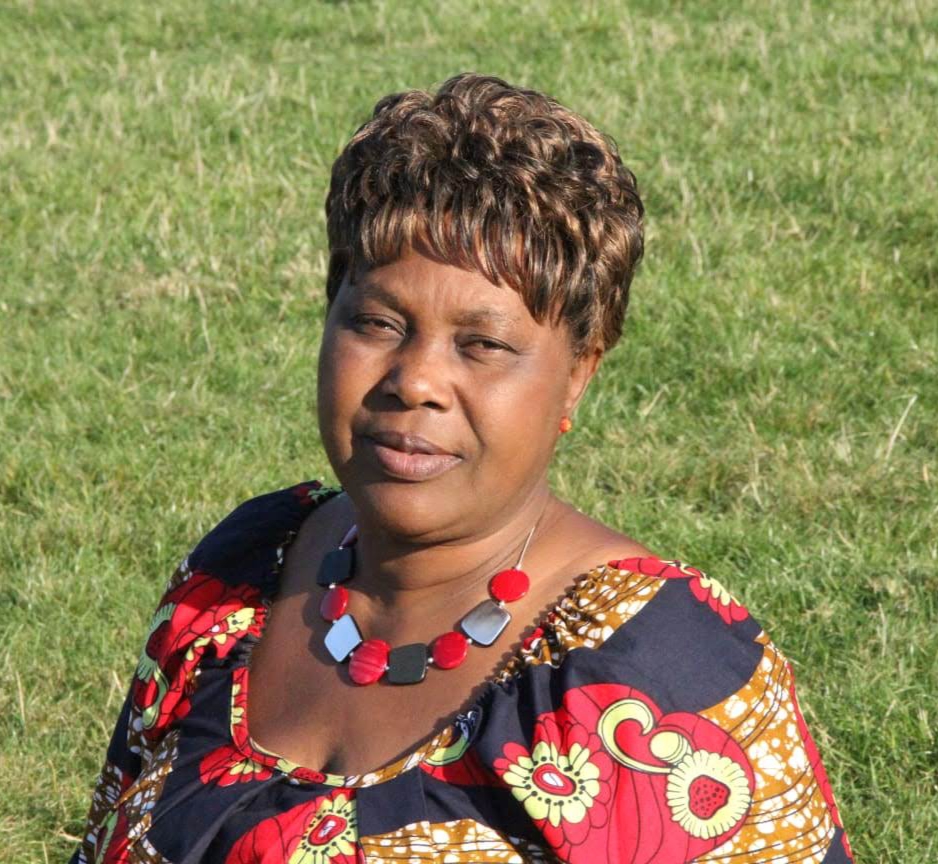
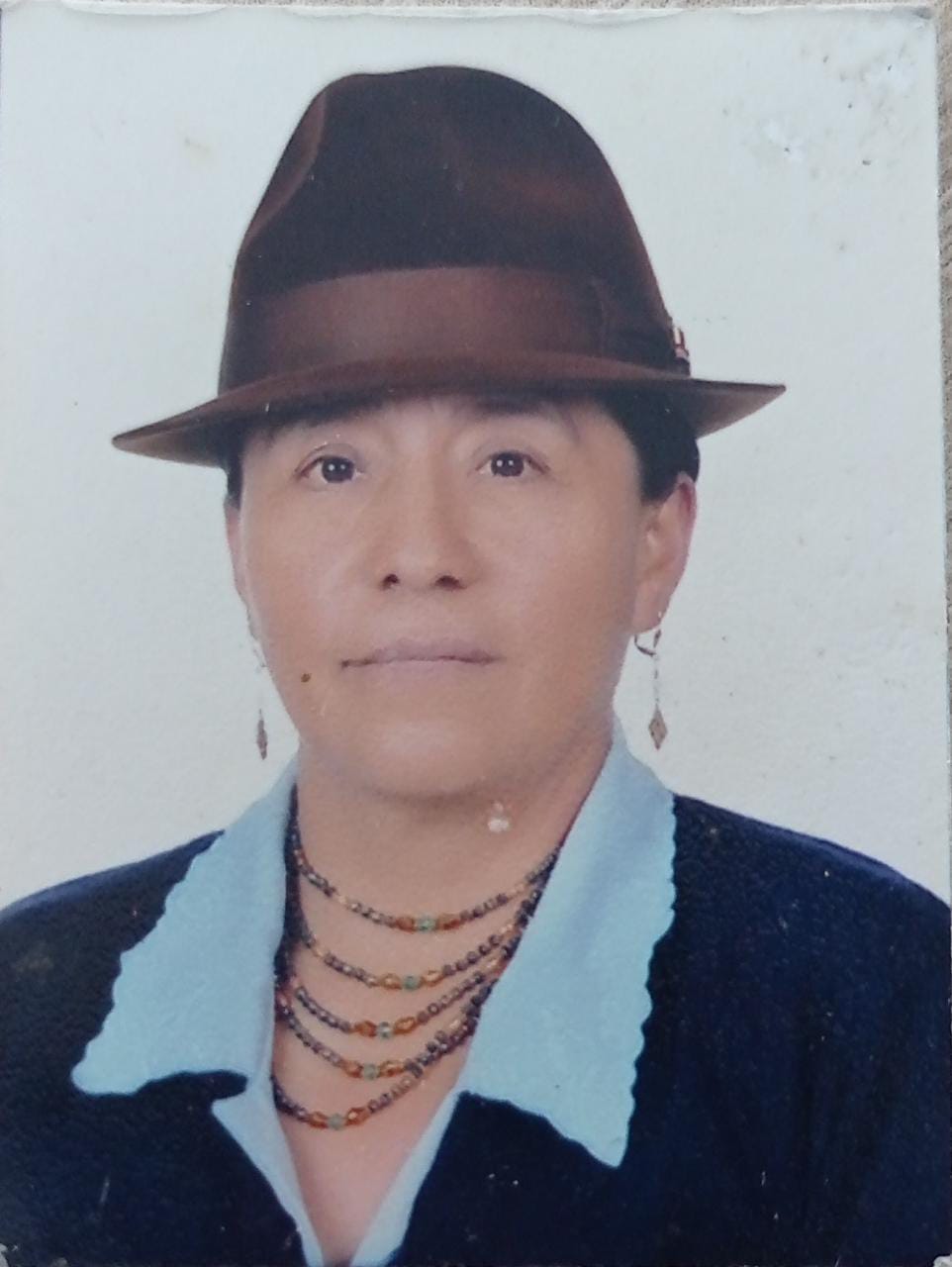
Diocelinda Iza Quinatoa
Grassroots At Large Representative
María Diocelinda Iza Quinatoa is a renowned national leader within the Indigenous People’s movement in Ecuador. As the co-coordinator of the Luna Creciente Movement of Women of Popular Sectors she brings together 6,000 women across 5 provinces in Ecuador to build resilient practices and advocates for indigenous women’s and environmental rights. She is the founder of OMISCSE (Organización de Mujeres Indígenas y Campesinas Sembrando Esperanza), which is a coalition of more than 25 Indigenous and women farmers’ organizations in her province of Cotopaxi, for which she acted as president for many years since its founding in 1998. Diocelinda is a long term organizer and at the moment her organization is the only one in the country bringing together more than 600 women’s groups from popular sectors across ethnic, age, geographical, types of work and sexual identity diversities.
In 2016 she received a Master’s Degree in Intercultural Communication, with a focus on gender, from the Central University of Nicaragua. She has an in-depth of experience in conservation, sustainable agriculture, political participation and analysis of policies around markets and free trade. The women’s groups in her local network, Sembrando Esperanza (Cultivating Hope) are working to reduce their vulnerability to floods, droughts, wind, snow damage and erosion. Diocelinda has been a spokesperson for indigenous women’s rights and and represented grassroots women’s priorities and agendas both regionally and internationally. In 2018 & in 2021 she received recognition for her role as an indigenous leader in the struggle for women’s collective rights and strengthening women’s organizations from the Decentralized Autonomous Government of the province of Cotopaxi.
Elisabeth Markham
Treasurer & Facilitating NGO Representative
Elisabeth is a leader in community-led development, gender equality, and grassroots women’s empowerment, with over 30 years of transformative work in Zimbabwe. Since 2003, she has championed women’s property rights and, from 2018, led grassroots women’s land ownership movements. Drawing on her background in theatre, film, and anthropology, Elisabeth uses storytelling as a powerful tool for social change—work that has earned her two National Merit Awards.
Her efforts span mobilizing women’s savings groups, promoting climate-smart farming, installing solar-powered boreholes, and advancing agroecology and biodiversity. She works alongside women, families, and people with disabilities to build inclusive, resilient communities and drive equity at every level.
Elisabeth is the founder of Ntengwe for Community Development, a Private Voluntary Organization that has been a dedicated member of the Huairou Commission for 15 years. Through her leadership, she continues to build movements that inspire justice and sustainable change.
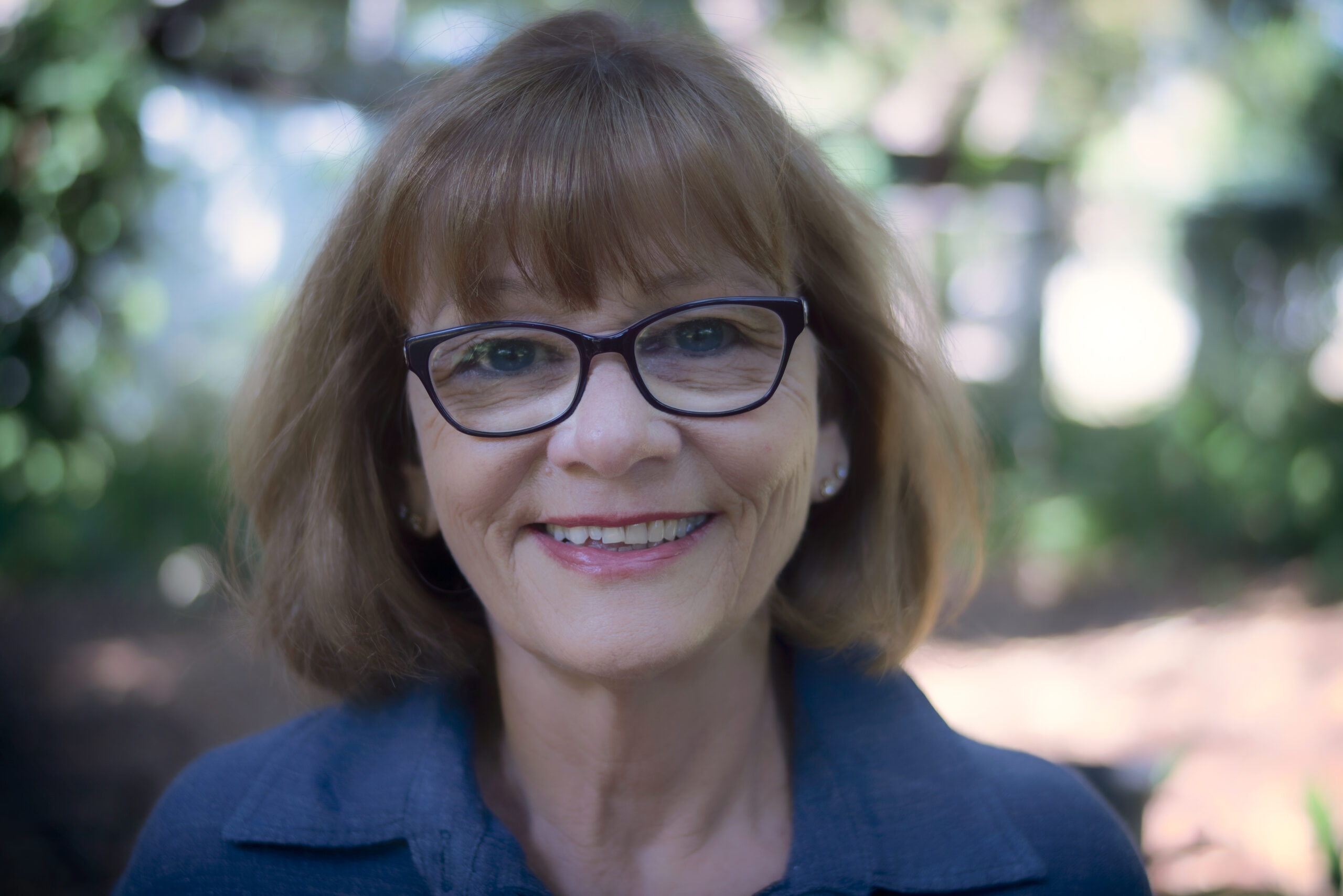
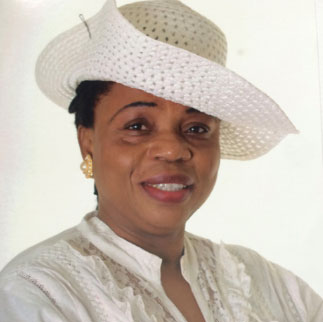
Limota Goroso Giwa
Membership Committee Chair & Facilitating NGO Representative
A prolific writer, feminist and renowned activist for women’s human rights and peace, Limota serves as the Executive Director of the International Women Communication Center (IWCC), a women’s human rights NGO committed to promoting and protecting the rights of women, girls and vulnerable groups in Nigeria. Limota is also the vice chair of the transition monitoring group in Nigeria, coordinating over 450 civil societies, and sits on the Board of WAEON, representing TMG Nigeria in sub-regional grouping. In 1994, she served as West Africa Countries Coordinator of Pan African Women’s Liberation Organization (PAWLO) in Kampala, Uganda, before returning to Nigeria to focus on changing local and national policies that interfere with gender issues and development. As a recipient of a Fulbright scholarship, Limota completed her PhD research at the University of Huddersfield’s School of Human and Health Science (United Kingdom), with a focus on HIV and other sexually transmitted infections in polygamist Muslim society. In 2005, she was among the 1,000 women nominated for the Nobel Peace Prize, for women who have contributed immensely to global peace and sustainable development.
Sobina Lama
Facilitating NGO Representative
Sobina Lama, is a development sector professional working with Lumanti Support Group for Shelter in Nepal and is a member of the Huairou Commission since 2010. Sobina has a Bachelor’s degree in Humanities and 20+ years of experience in working with urban poor communities in Nepal in the areas of (Education, WASH , Climate Change, Community Resilience and DRR) Sobina’s experience spans across organizing and mobilizing communities to facilitating and training them for engaging in dialogue with the government. She has expertise in building credible partnerships with the government, funding agencies and other key stakeholders from the local to the national level. Sobina coordinates the work of the National Network of Women in Community Resilience (NNWCR), comprising eight NGOs and grassroots women’s organizations, through her organization that acts as the Secretariat of this network. She sits on the board of other organizations in the region and advises them in strategizing and program implementation.
As the focal point of communication and coordination between Lumanti and the Huairou Commission, Sobina has played a critical role in facilitating communities to implement resilience projects supported by HC’s Community Resilience Fund and also in coordinating National Members of Huairou Commission in Nepal. She has represented grassroots women’s priorities and issues by participating in various policy fora at national, regional and global levels such as the Global Platform on DRR, Asian Ministerial Conference, World Urban Forum, and UN-Habitat
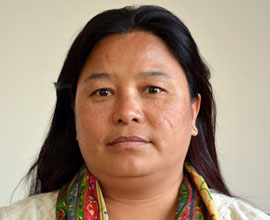
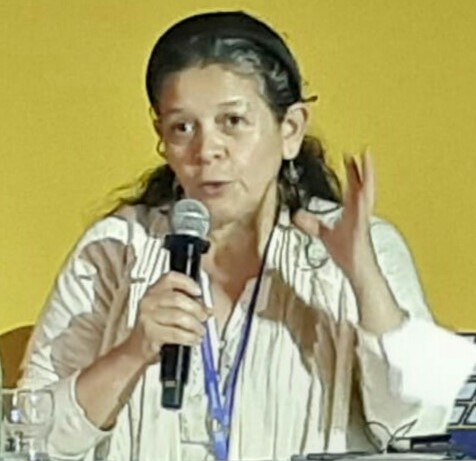
Maite Rodriguez
Facilitating NGO Representative
For 22 years, Maite has worked with grassroots women’s movements struggling for land rights, women’s rights, community resilience and safer cities. Maite is Program Coordinator of Fundación Guatemala and was the co-founder of the Women and Peace Network in Central America, in coordination with the Arias Foundation of Costa Rica. She is the Regional Coordinator of the Women and Habitat Latin American and Caribbean Network, both are founding networks of the Huairou Commission. Maite also is the Coordinator for the Gender and Feminist Studies Program at the National Autonomous University of Mexico (UNAM), which has trained women in governmental institutions, international cooperations and civil society organizations for 21 years. She also coordinates the Leadership School for Grassroots Women for Community Resilience and DRR; also Leadership School for Safer Cities, also linked to the CEEICH-UNAM. Maite led the coordination of the “Certification for Grassroots Women as Development Agents for DRR” with CONRED, which is now a regional policy training for grassroots women adopted by the CEPREDENAC.
Maite joined Huairou Commission in 2000 and has represented women’s organizations at various national, regional and global forums every year. She also was involved in the entire Transitional Process, during the 4 years that transitioned from a network led organization to a member led organization. She was involved with Limota Goroso and Violet Shivutse in designing and creating the Membership Committee for the 1 st Global Congress that took place in Kuala Lumpur. Also Maite has been participating in different peer to peer exchanges among grassroots women leaders and organizations in LA, Asia and Africa and also in the different Brain Trusts that created the Theory of Change of the Diamond of the Resilience of Huairou Commission.
Sandy Schilen
Ex-Officio, Non-Voting Member
Sandy Schilen is the Executive Director of the Huairou Commission–a social movement building network connecting rural and urban grassroots women’s groups organized in their poor communities to realize their vision of economic and gender just resilient development in 45 countries. Trained as a Political Economist, focused on development, gender and labor issues, Sandy chose communities over the classroom and has worked to fortify and strengthen grassroots women’s representation in and agenda setting impact on global development policies for three decades. Her attention to building and nurturing long term relationships among and across community women leaders and their facilitating partners has helped grow a unique grassroots network that is respected for its strengths and capacities locally to globally. Working with members in India, Honduras, and Turkey in the early 1990s—Sandy helped build a strong platform for exchanging and showcasing community women’s leadership in recovery and DRR. She is a founder of the Community Resilience Fund and collaborated with other network leaders and UNISDR’s SDSG Margareta Wahlstrom to launch the Community Practitioner Platform to insure that grassroots constituencies had their own stakeholder group and public opportunities to directly contribute to the framing and finalization of policy priorities and strategic actions expressed in the Sendai Framework for Action.
